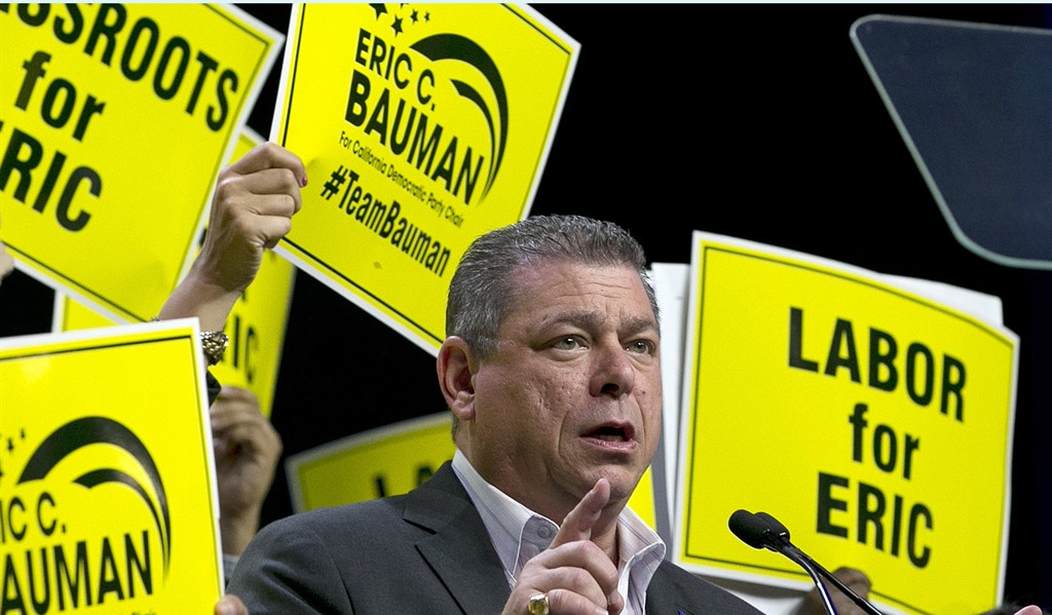Wednesday the NY Times published an article about the ongoing battle being waged inside the California Democratic Party over the party chairmanship:
The fight pits Eric C. Bauman, a longtime party leader, against Kimberly Ellis, a Bay Area activist. Mr. Bauman won the election by just over 60 votes out of 3,000 cast at the party convention in May, but Ms. Ellis has refused to concede, claiming voting improprieties, like permitting ineligible people to vote for Mr. Bauman.
The party is expected to issue a final ruling on Ms. Ellis’s allegations by Aug. 20; in an interview, she said she would go to court if the party ruled against her. This has left Mr. Bauman, who encountered a barrage of shouts of “not my chairman” when he delivered his victory speech, struggling to put behind him a contest that has been the subject of recounts even as he seeks to position Democrats for a challenging congressional election in 2018.
This seems to have become a bit of a proxy battle because Bauman is a consummate Democratic establishment insider who was a delegate for Clinton in last year’s election. By contrast, Ellis is the outsider who now has the support of Bernie Sanders:
It is her first run for party leadership. She has spent the past eight years as the executive director of Emerge America, which recruits and trains women to run for office. Ms. Ellis — who backed Hillary Clinton in the Democratic primary race last year but has gained the support of Senator Bernie Sanders — presented her candidacy as a challenge to the way the Democratic Party in California does business, starting with an animating promise: “Giving the Democratic Party Back to the People.” If she had been elected, she would have been the first African-American to lead the state party.
In her challenge to the results of the election, Ellis claims “There is a strong implication that party insiders, with intimate knowledge of how the CDP operates, were able to exploit the weaknesses inherent in a process staffed by the volunteers with minimal training.” She is literally claiming the establishment may have stolen the election. And she connects this directly to the results in 2016:
The Party cannot go back in time and alleviate the storm of suspicion that surrounded last year’s presidential primary campaign. But, in this instance, the CDP has the ability to do the right thing and subject our Chair’s election to independent scrutiny. The genie of growing suspicion based on compelling evidence can, in fact, be put back in the proverbial bottle.
The fight over the party chair election isn’t the only one being waged between the two wings of the party in California. The fate of single-payer in the state, something Bernie Sanders championed during his campaign, has also led to an ugly pitched battle. Establishment Democrats shelved a single-payer bill after a cost estimate showed it would be extremely expensive. The response from the union pushing the bill was so ugly that the entire Democratic Assembly asked them to stop behaving like bullies. But the fighting hasn’t stopped. Now there is an effort to recall Assembly Speaker Anthony Rendon, the person who shelved the bill.
Republicans have been getting all of the national media attention for their party divisions, which is understandable since they are in control of Congress and the White House. But the Democratic Party’s divisions after the 2016 election are no less serious and do not seem anywhere close to being healed. As the NY Times puts it, the state where Democrats should be celebrating their complete political control has instead become “a cautionary tale.”









Join the conversation as a VIP Member